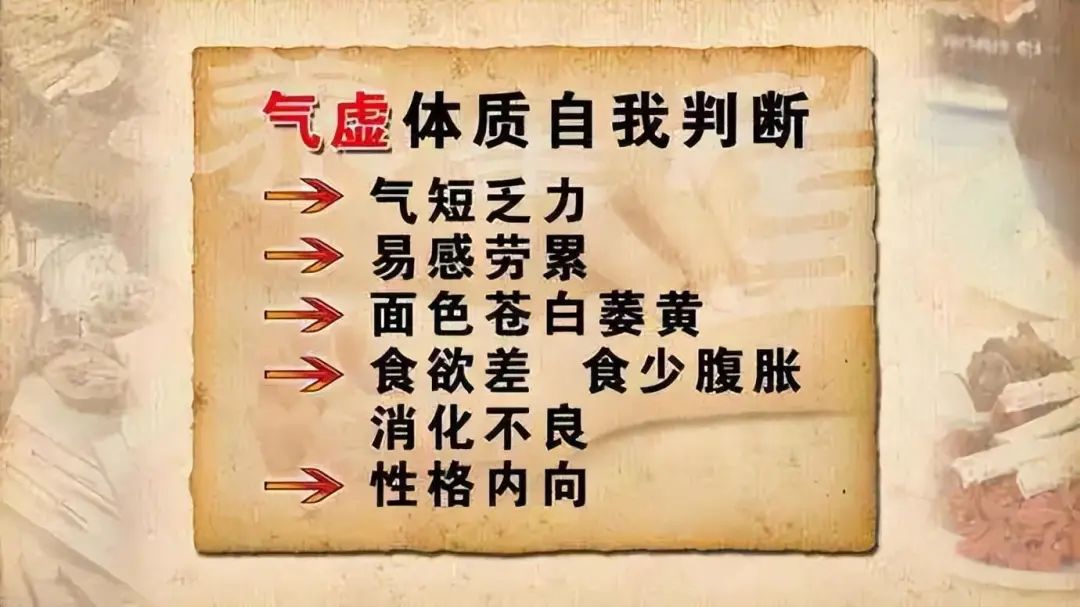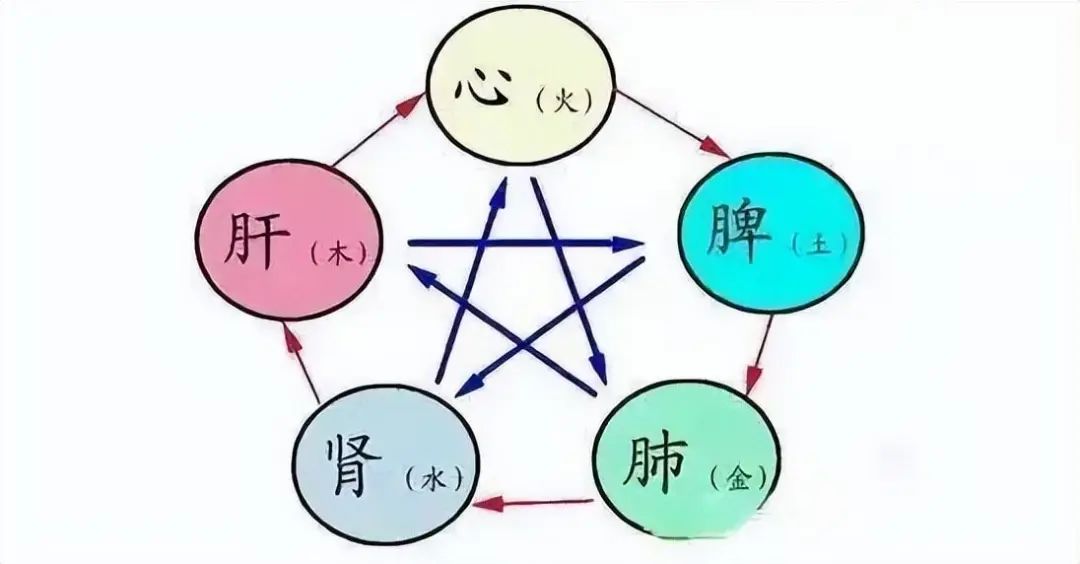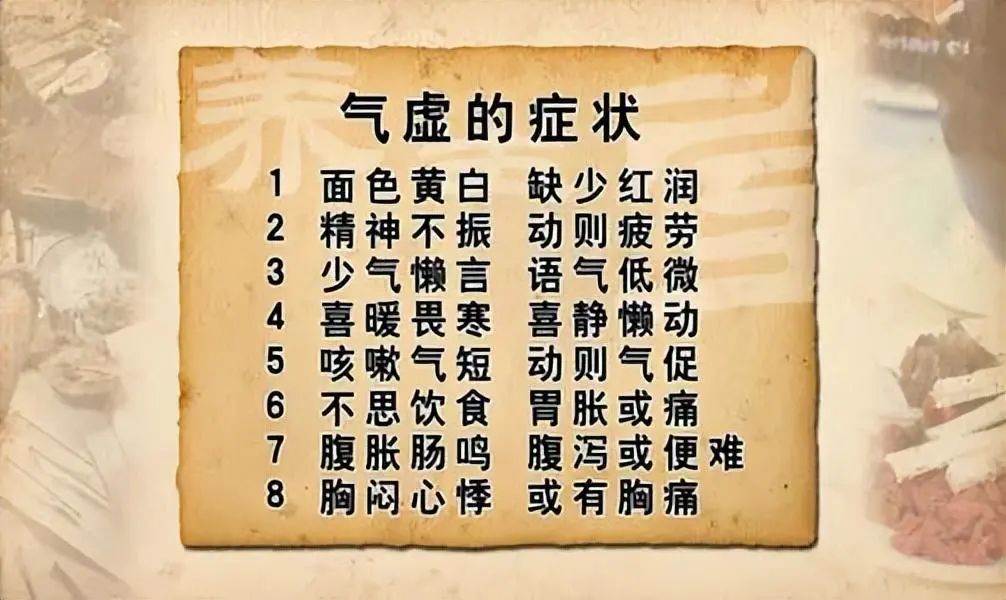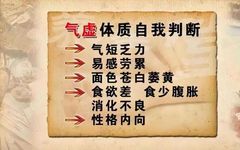Health is beautiful, and we aim to promote health knowledge.
Click below to follow for free↓↓↓
Full of vitality and physical strength is a sign of good health, while Qi deficiency not only leads to fatigue and weakness but also affects the functions of related organs, causing various health issues. The manifestations of Qi deficiency in the five organs are distinct, and appropriate regulation is necessary to replenish the Qi of the five organs.
Many people are unclear about the symptoms of Qi deficiency. Generally, the symptoms of Qi deficiency include: overall fatigue and weakness, lack of energy, low speech, soft and weak pulse, pale tongue, and spontaneous sweating. However, the symptoms of Qi deficiency can be categorized according to the five organs: heart, lung, liver, spleen, and kidney, each with slight variations.

Heart Qi Deficiency
Main signal: Shortness of breath
Secondary signals: Palpitations, mental fatigue, and symptoms such as a weak pulse, which may be slow or rapid but soft and weak, along with restlessness.
The heart governs blood vessels and reflects on the face. Heart Qi deficiency leads to insufficient blood, causing those with Qi deficiency to have a pale or sallow complexion. The heart governs the spirit, and all emotions are regulated by the heart, making individuals with Qi deficiency prone to palpitations, insomnia with vivid dreams, dizziness, forgetfulness, and low energy, often with an introverted personality. The heart is an organ, and the small intestine is a bowel; both belong to the fire element in the five elements, forming an interrelated relationship physiologically and pathologically. Heart Qi deficiency results in weak blood circulation, leading to bloating or constipation in the small intestine.
Treatment principle: Tonify heart Qi. Main formula: Zhai Zhong Decoction, modified Yangxin Decoction.
Heart Qi deficiency is common in patients with cardiovascular diseases, insomnia, anemia, and those engaged in mental labor. Daily practices such as acupressure and dietary therapy can help regulate this condition. The Shenmen (Heart 7) point is the source point of the heart meridian, located at the end of the wrist crease on the side of the little finger. Pressing or massaging the Shenmen point until a slight soreness is felt can tonify heart Qi, calm the spirit, and aid sleep.
For dietary therapy, use lily and longan meat, stewed with a little rock sugar, consumed in small amounts daily. Alternatively, cook a porridge with lily, lotus seeds, and japonica rice, taken in the morning and evening.
Lung Qi Deficiency
Main signal: Shortness of breath
Secondary signals: Low energy, low voice, and symptoms such as cough and phlegm.
The lungs govern Qi. In cases of lung Qi deficiency, individuals with Qi deficiency have weak breath and shortness of breath, speaking in a low voice. The lungs open to the nose and govern the skin; cold and wind pathogens easily invade the body through the mouth, nose, and skin, making those with Qi deficiency prone to colds and asthma. The lungs are an organ, and the large intestine is a bowel; both belong to the metal element in the five elements, forming an interrelated relationship. Insufficient lung Qi can lead to constipation or diarrhea in those with Qi deficiency.
Treatment principle: Tonify lung Qi. Main formula: Baoyuan Decoction with Schisandra.
Lung Qi deficiency is common among individuals with recurrent colds, those in sub-health states, and patients with chronic respiratory diseases. Astragalus is an excellent herb for tonifying Qi, particularly lung Qi, with effects of strengthening the spleen, boosting Qi, stabilizing the exterior, and enhancing immunity.
Those with lung Qi deficiency can drink Astragalus tea (made from raw Astragalus, lily, goji berries, and Rhodiola) to nourish lung Qi.

Liver Qi Deficiency
Main signal: Dizziness
Secondary signals: Blurred vision and lack of spirit in the eyes.
The liver opens to the eyes. In cases of liver Qi deficiency, individuals with Qi deficiency may experience dizziness and blurred vision, along with a lack of spirit in the eyes. The liver is an organ, and the gallbladder is a bowel; both belong to the wood element in the five elements, forming an interrelated relationship. The liver governs the smooth flow of Qi; if Qi and blood are insufficient, individuals with Qi deficiency may experience emotional instability and timidity.
Treatment principle: Soothe the liver and regulate Qi. Main formula: Chai Hu Shu Gan San, modified.
Liver Qi deficiency is common among those who work on computers, those who sit for long periods, and patients with liver and gallbladder diseases. Cornelian cherry is sour and warm, tonifying Qi without being drying, making it an essential herb for tonifying liver Qi. Based on the liver’s preference for smooth flow and the tendency for liver diseases to become stagnant, adding herbs like Chai Hu and mint to the tonifying formulas can help prevent stagnation due to deficiency and assist in the recovery of liver Qi.
Spleen Qi Deficiency
Main signal: Fatigue
Secondary signals: Pale complexion, mental fatigue, weakness in the limbs, and reduced appetite, often accompanied by abdominal distension, poor digestion, loose stools, and symptoms such as prolapse or frequent urination.
The spleen opens to the mouth, and its health is reflected in the lips. In cases of spleen Qi deficiency, individuals with Qi deficiency may have pale lips. The spleen governs the muscles and limbs; those with Qi deficiency often feel weak and fatigued. The spleen is an organ, and the stomach is a bowel; both belong to the earth element in the five elements, forming an interrelated relationship. Insufficient spleen Qi can lead to poor appetite and digestion.
Treatment principle: Strengthen the spleen and boost Qi. Main formula: Si Jun Zi Tang, modified.
Spleen Qi deficiency is common among those with irregular eating habits and patients with digestive system diseases. The San Yan point is a key acupoint for strengthening the spleen and stomach. To locate it, extend your left hand with the palm facing you, draw three vertical lines dividing the ring finger section into thirds, and then draw two horizontal lines dividing it into thirds, forming six intersection points. The San Yan point is at the top left intersection; locate the right hand’s San Yan point similarly at the top right intersection. Use the thumb of one hand to press firmly on each point for 10 minutes, alternating hands.

Kidney Qi Deficiency
Main signal: Tinnitus, frequent urination
Secondary signals: Dark complexion, dizziness, hearing loss, along with weakness in the lower back and knees, clear and frequent urination, reduced sexual function, pale and moist tongue, and weak pulse.
The kidneys govern the marrow, and their health is reflected in the hair. In cases of kidney Qi deficiency, individuals with Qi deficiency may have dull hair. The kidneys are an organ, and the bladder is a bowel; both belong to the water element in the five elements, forming an interrelated relationship. Insufficient kidney Qi can affect bladder function, leading to frequent urination.
Treatment principle: Tonify kidney Qi. Main formula: Shenqi Wan, modified.
Kidney Qi deficiency is common among the elderly, some men with sexual dysfunction, and some menopausal women. Chestnuts are beneficial for tonifying the kidneys and strengthening the sinews, with good dietary effects for kidney Qi deficiency and weakness in the lower back and knees. Here is a dietary recipe for tonifying the kidneys: Chestnut and Pork Rib Soup.
Ingredients: Fresh chestnuts, pork ribs, carrots, salt. Method: Peel the chestnuts, blanch the pork ribs in boiling water, and cut the carrots into pieces. Add water and bring to a boil over high heat, then simmer for 30 minutes, adding salt to taste. Suitable for those with kidney Qi deficiency and weakness in the lower back and legs.
The body is very sensitive; when it feels discomfort, it will send signals. What we need to do is listen to these signals and discern them clearly.
Health knowledge is promoted by the Home Remedies Community.
Click below to follow for free↓↓↓
The editor shares good articles with friends.
1. Is there damp-heat in the lower jiao? Using Longdan Xiegan Wan, always recurring? Here’s a tip on how to use it correctly.
2. What are the manifestations of damp-heat constitution? What is it related to? How to improve?
3. So precious! Over 800 home remedies, there’s no illness that can’t be treated, save for future reference!
4. The most comprehensive collection of massage techniques videos—if you want to learn massage, hurry and save!
Like is a form of encouragement Share to spread joy

